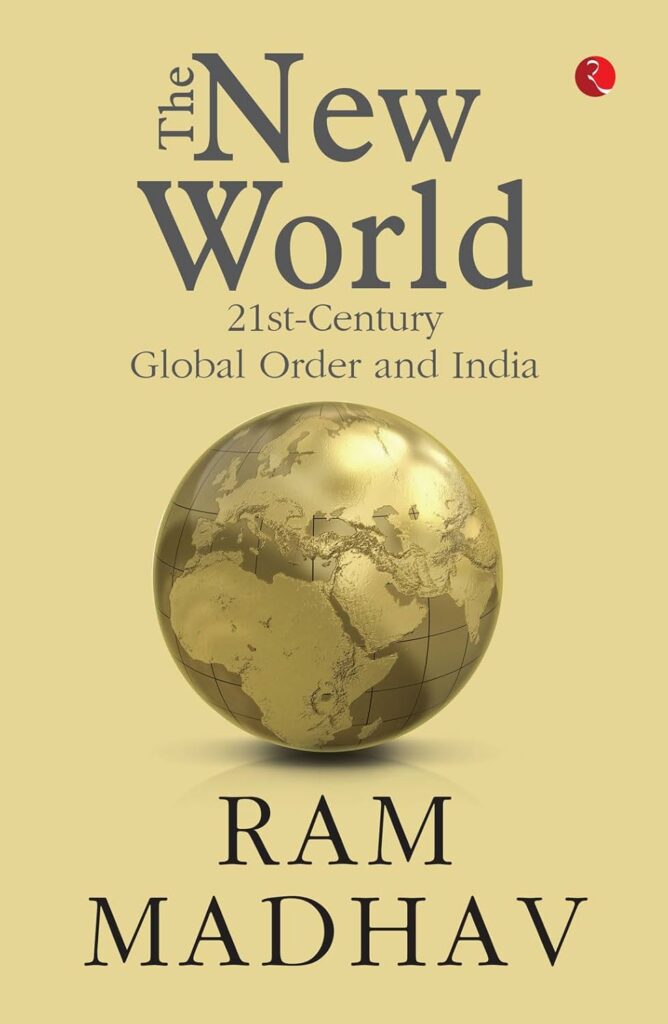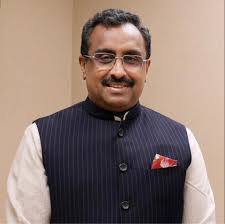
Ram Madhav, a prominent Indian political thinker, strategist, and public intellectual, has penned a timely and thought-provoking book, 'The New World: 21st Century Global Order and India,' at an opportune moment. Published post-Operation Sindoor, the book gives the reader a glimpse into the geopolitical past as it investigates the shifting dynamics of the post-Cold War, post-pandemic, and post-unipolar world.
But more importantly, what challenges lie ahead for India as this great civilisation tries to find its place in the emerging multipolar world order, against the backdrop of the U.S.-China rivalry, Russia’s resurgence, and the decline of Western political hegemony. The book analyses India’s strategic choices, its civilizational ambitions, and the policy recalibrations necessary to secure its global standing.
Overview
In his latest book, Ram Madhav takes us on a journey of India’s strategic awakening as he flowingly illustrates the many important historical events—from the rise and fall of empires like Rome, the rise of Christianity and Islam, colonialism, industrial revolution, Great Britain and the era of Pax Americana.
For aspiring International Relations experts, Ram Madhav is arguably the first in India to write about our transition to a multipolar, or even heteropolar, world. He highlights how global institutions like the United Nations and International Monetary Fund have lost their influence, and addresses the growing impact and intervention of big tech giants, global NGOs, non-state actors involved in terrorism, and Artificial Intelligence.
Few Major Themes
From Unipolarity to Multipolarity
Ram Madhav documents the weakening of post-1945 Western dominance and traces the ascent of China, the re-emergence of Russia, and the assertiveness of middle powers—Turkey, Brazil, and especially India. He labels this “G-Zero”: a world without central leadership, prone to fluidity and contestation.
The Crisis of Multilateralism
He writes on the erosion of global governance structures like the UN, which has become ineffectual and is a relic of the Bretton Woods era. The author asserts that new institutions must now work towards global problems, such as the Indo-Pacific, dealing with climate, health, and frontier technologies.
Technological & Demographic Disruption
Ram Madhav highlights AI, Big Data, robotics, and quantum computing as power multipliers in geopolitics. Demographically, he contrasts ageing Western populations with youth-rich nations like India, which is a very critical global strength for India. He writes that the world is now entering the fourth industrial revolution with AI at the forefront.
Civilizational Nationhood & India’s Strategy
He frames India as a “civilizational state,” unique in combining democracy, pluralism, and deep cultural rootstock. The author advocates moving away from the post-independence Nehruvian idealism to the Modi-era “multi-alignment” as we must manoeuvre as per our interests while dealing with diverse powers and preserving our autonomy.

What Makes the Book Compelling?
The book is not esoteric, and the prose is clear, allowing a layperson to understand and appreciate the history and the future. Ram Madhav, who is one of India’s leading geopolitical thinkers, seamlessly stitches geopolitics, tech, demographics, ecology, and philosophy, which is no mean feat. The book takes a bold stand and does a critical analysis of the authoritarian, Red Capitalist China as it imposes its exceptionalism on the world.
The author strongly argues that the time has come for India to take its place in the global world order, and it must remain the sole hegemon in the Indian Ocean and neighbouring region, moving from passive to driver status. In that regard, every powerful nation must have its own reasonable Monroe Doctrine to protect its interests, at least this author thinks along those lines.
Ram Madhav, who is one of India’s leading geopolitical thinkers, seamlessly stitches geopolitics, tech, demographics, ecology, and philosophy, which is no mean feat.
From Panchsheel to Panchamrit: India in the 21st Century
It has taken India nearly seventy years to come out of the shadow of Jawaharlal Nehru as the Indian foreign policy trajectory moves from a postcolonial peace-seeking state to an assertive civilizational power. This book looks into the emergence of the Panchsheel principles of the 1950s to the Panchamrit doctrine of the 21st century.
Though India has not moved from its stand and still advocates that all nations must respect each other’s sovereignty and territorial integrity, non-interference in internal affairs, and peaceful coexistence, it will now come with a caveat when the balance is disturbed.
Under Prime Minister Narendra Modi, India’s foreign policy has now moved from moralistic non-alignment to multi-alignment based on realism, soft power, and civilizational assertion. India has transitioned from idealism to pragmatism, from defensive posturing and appeasement to strategic assertion, and has diminished Western liberal framing/narratives to an Indic civilizational narrative.
For India, the journey from Panchsheel to Panchamrit is maturation from a moralistic postcolonial state to a confident civilizational power navigating a heteropolar world while still upholding principles of peaceful coexistence.
Final Thoughts
Ram Madhav mentions Pandit Deendyal Upadhyaya in his book, who wrote about Chiti. To the uninitiated, Chiti is the inner essence, or national soul, of a civilisation, and Modi has internalised it, and that is reflecting on the behaviour of the people.
यद्यदाचरति श्रेष्ठस्तत्तदेवेतरो जन । स यत्प्रमाणं कुरुते लोकस्तदनुवर्तते॥
It is mentioned in the Bhagwat Gita that “Whatever a great person does, others follow.
The standard they set becomes the norm for the world.”
Conclusion
The New World could not have come at a better time. Published post-Operation Sindoor, this book marks an inflexion point where Madhav presents a realist-civilizational approach, devoid of Western paradigms. The New World showcases Ram Madhav’s intellectual breadth, as he delves into historical, technological, demographic, geopolitical, and philosophical dimensions. It offers students and scholars enhanced insights into International Relations. The book is an uplifting read that encourages Indians to think big and act decisively, blending tradition with modernity, and idealism with pragmatism.
Book Title: The New World: 21st-Century Global Order and India
Author: Ram Madhav
Publishers: Rupa Publications
Price: ₹596
SW Ratings: *****
Balaji is a freelance writer with an MA in History and Political science and has published articles on defence and strategic affairs and book reviews. He tweets @LaxmanShriram78. Views expressed are the author’s own.
